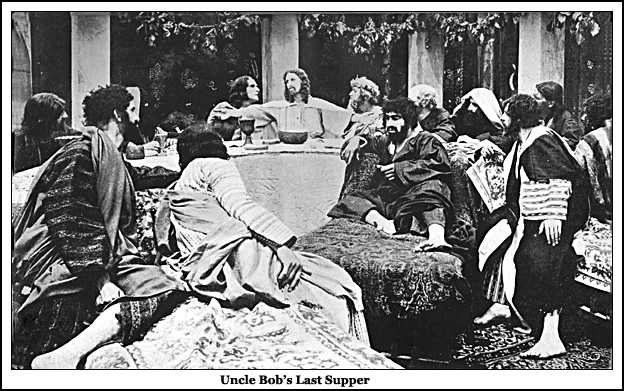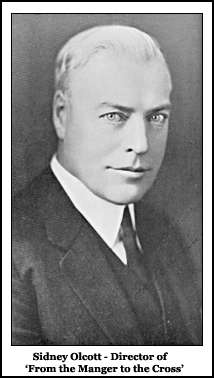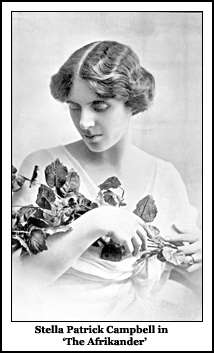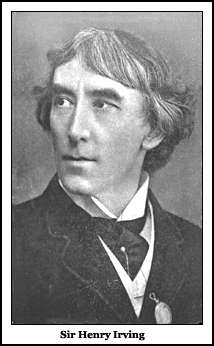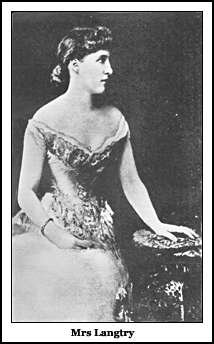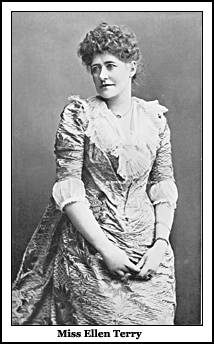From The Manger To The Cross:
Filmed on location in the Holy Land instead of against painted backdrops.
I played the part of Christ and this was my most famous acting role.
It was made in five reels and lasted for 70 minutes being one of Hollywood's
first feature length films. When it debuted on October 3rd 1912 it was met
with near-universal acclaim. ("Because of this sublime work it will
be easier than it was before to "go forth and teach all nations"
Moving Picture World);
On Saturday March 12th 1938 a private screening of a reissue of the film
(with musical accompaniment and running commentary - I went to America and
found and made a copy of the original - over 90% of the films made before
1920 are now lost for ever) was held at Fulham Palace and the proceedings
were honored by the presence of Her Majesty Queen Mary.
After the screening the Bishop of London (Dr. Winnington Ingram) sent for
me to meet Queen Mary in the drawing room to tell Her about my work in the
film. During the whole conversation I sat at a small table alone with the
Queen, and the Bishop went over to cut some of his home made cake for Her
Majesty, also cutting me a piece at the same time.
I reminded her of the fact that I had the honor of being presented to Her
and to His late Majesty, King George V, at Osborne, after the Great War.
And I told her of an incident about a badly wounded officer their Majesties
saw in my room on that occasion. Her Majesty said that she remembered the
incident. I then told her that I talked with that officer he died a few days
later after their Majesties had left, and he told me, with a smile,
that he would die happy having spoken to Their Majesties.
Return to List
An amusing incident while playing Hamlet:
Mrs. Bandmann-Palmer was playing Hamlet in Dumfries, where Burns the poet is buried. Dumfries was a three-night town in those days, and we were finishing the week by playing Hamlet on the Saturday night. Henry Crocker, a most conscientious actor and stage manager, had been so annoyed at the dilatory manner in which the stage hands worked, that he told them that the customary tip on the last night would not be forthcoming, so they plotted a deep revenge.
They knew that Crocker would play the First Grave-digger because they had seen him rehearse the part. They were ordered to get some earth for the grave, and they did so, but at the same time they collected the filthiest garbage they could find, and put that in the grave also. Poor Crocker went to his doom without any warning.
I was playing Laertes, and standing in the "wings" awaiting my cue, attired in an appropriate black doublet, hose, and mantle. Suddenly I noticed Crocker doing certain business 1 had never seen him do before. He held his nose with his hand and gave vent to strange exclamations of disgust; and then, leaning on his spade, rocked with laughter. I wasn't very much struck with this new business, and thought some of it rather distasteful realism.
He was laughing uproariously when 1 made my entrance with the funeral procession, and when I said:
" Hold off the earth awhile
Till I have caught her once more in mine arms,"
and leaped into the grave and bent down as if to kiss Ophelia for the last time, he nearly exploded.
I soon learned the reason for this uncalled-for hilarity. My olfactory nerves were assailed with such a disgusting stench that I staggered out of the grave as one gassed - phosgene would have been welcomed with pleasure at that moment - and flung myself blindly upon Hamlet, who thought that I had suddenly gone mad.
But certain evidences of there being "something rotten in the state of Denmark "convinced Mrs. Bandmann-Palmer that 1 had some reason for behaving with such violence. I was all impatience to get off to find the scoundrels who had played this trick, and the admonition of Claudius : "Strengthen your patience," was given at a moment when 1 noticed that my shoes were covered with filth and was singularly appropriate.
Those stage hands were missing that night, and how Crocker got the scenery out I know not. When I asked him how he could laugh so heartily while suffering such a horrible stench, he said that the only thing that supported him was the knowledge that I had to leap into the mess.
Return to List
1998 Film Selections for the National Film Registry:
Statement of James H. Billington The Librarian of Congress, Los Angeles,
November 16, 1998:
Good evening. Tonight, I have the honor of announcing the tenth list of
films I have chosen for the National Film Registry, located in the Library
of Congress. I have named 25 films each year during the nine years since
the National Film Preservation Act was enacted by Congress. Today's
selection will bring the number of films in the Registry to 250.
Taken together, these 250 films represent a broad range of American
filmmaking --- all deserving recognition, preservation,
and access by future generations. ---
The films we choose are not necessarily either the "best" American films
ever made, or the most famous. But they are films that continue to have
cultural, historical or aesthetic significance --- and in many cases
represent countless other films deserving of recognition.
"From the Manger to the Cross" was selected.
Return to List
|
